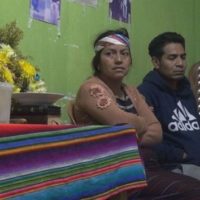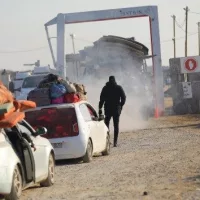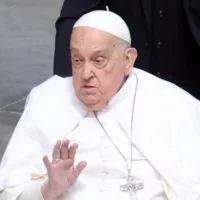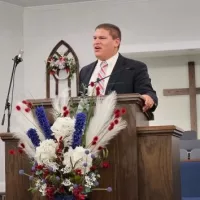
(NEW YORK) — Three members of the Olivares family left their homes in Veracruz, Mexico, for a better life in America. Instead of finding the employment they hoped would lead to a better future, they were among the 53 migrants who were found dead in a tractor-trailer that was left abandoned in the sweltering heat on a back road outside of San Antonio, Texas.
The site is now a roadside memorial, marking the spot where, on June 27, dozens died in the highest death toll of any suspected human smuggling attempt in United States history.
Thousands of miles away, families of the victims are just now starting to say their final goodbyes.
The family of brothers Jair Olivares, 19, and Giovanni Olivares, 16, and their cousin Misael Olivares, 16, had to fundraise in Mexico to pay for funeral costs while mourning their loss.
“They wanted to build a house and start a business. Here there is work, but it is very poorly paid… that’s why they went to look for a better life,” Valencia, the mother of Jair and Giovanni Olivares, told Reuters.
The family said they had agreed to pay a smuggler $10,000 for each teen.
Jair and Giovanni Olivares’ father said the last text message he received from his 19-year-old son was that the teens were in the trailer and hoping the smuggler would return for them shortly.
In the small town of Tzucubal, Guatemala, Maria and Casimiro Guachiac waited for weeks to have their son’s body sent back to them from the U.S.
Their son, Pascual Melvin, was just 13 years old.
Maria Guachiac said that before her son left, he said he was going to the United States to study, find a job and build a house.
Pascual Melvin was not alone. He was traveling with Wilmer Tulul, his cousin, who was also 13 years old and died in the trailer.
Both boys grew up in the town of Tzucubal, an indigenous Mayan community located in the area of Sololá, nearly 100 miles from Guatemala City where more than 70% of the population lives in poverty, according to the most recent census data in Guatemala.
Both boys left to find work in the United States to help their families.
The last time Casimiro Guachiac spoke to his son was three hours after the boys had arrived in San Antonio. Relatives in the United States had helped arrange the boys’ journey and said they agreed to pay the smugglers $6,000 for each boy before they arrived in San Antonio.
Guachiac said that his son had told him they were in a trailer, but that was the last time he heard from him.
In Honduras, funerals also are being held for those lost in the trailer tragedy. Brothers Fernando Jose Redondo Caballero and Alejandro Migue Andino Caballero and Margie Tamara Paz, a girlfriend of one of the brothers, died in San Antonio.
Many of the families of the victims, and those who survived, are afraid of speaking out. They say they fear retaliation from the unlawful organizations that orchestrated the trip. Many families say they still owe smugglers money, despite the journey ending in tragedy.
Guatemalan Foreign Minister Mario Adolfo Búcaro Flores said that the human smuggling industry is “sophisticated” and “transnational.”
“We formed a task force with the United States, Mexico and Honduras, working together with the district attorneys and the intelligence officers to be able to dismantle the organized crime industries,” Búcaro told ABC News Live Prime.
According to Búcaro, smugglers charge up to $15,000 to shepherd migrants across the border.
“We know that the numbers are growing, but it doesn’t just depend on the side of the government,” Búcaro said.
Four arrests have been made in the migrant deaths and two of the alleged smugglers, Homero Zamorano, Jr. and Christian Martinez, face charges that may result in life in prison or the death penalty. Both remain in federal custody and have not yet entered pleas.
The families in Honduras, Guatemala and Mexico are left praying to find peace and justice as they lay their loved ones to rest.
“I hope that in the United States, we’ll have justice,” said Maria Guachiac.
Copyright © 2022, ABC Audio. All rights reserved.













